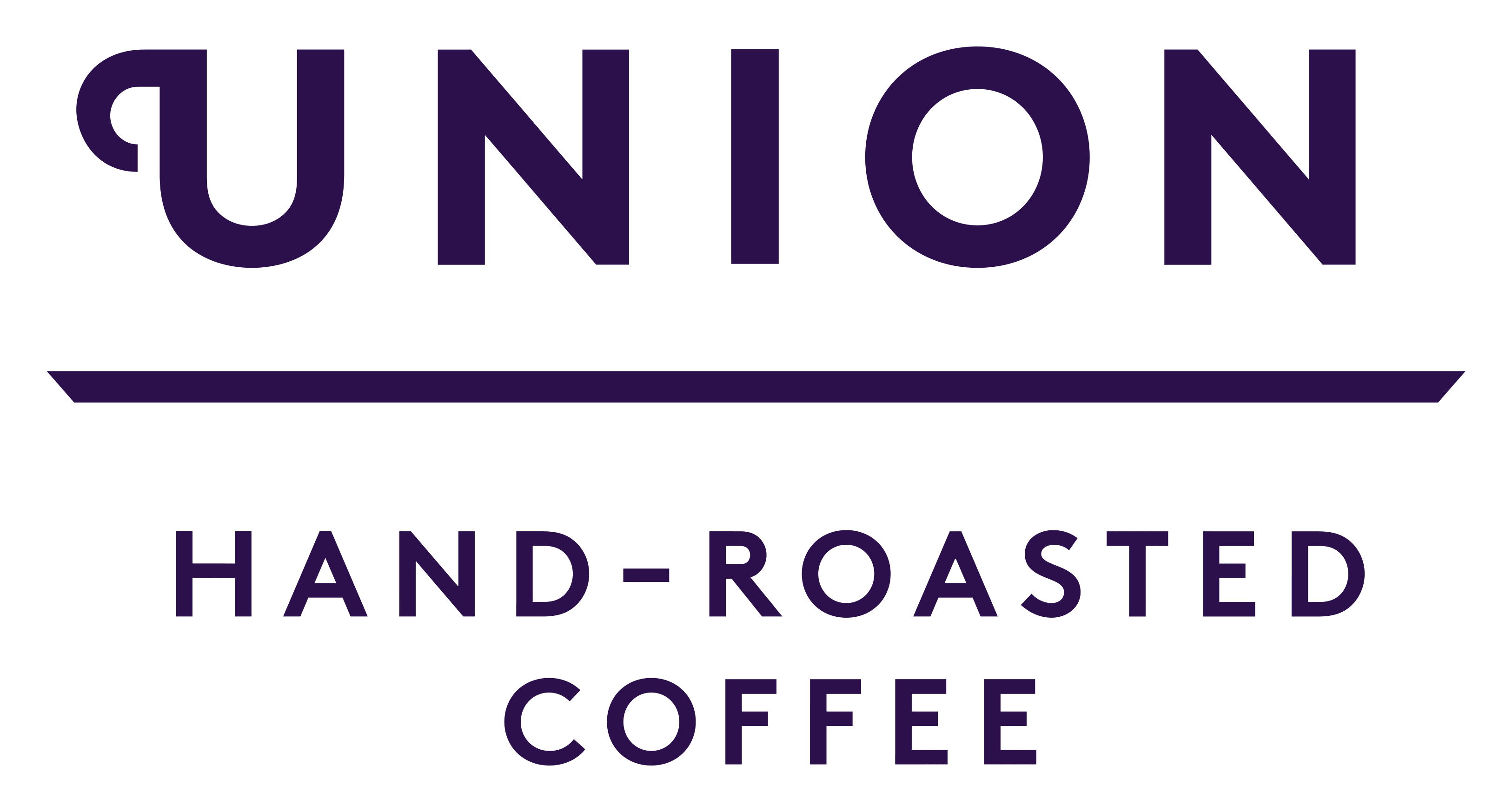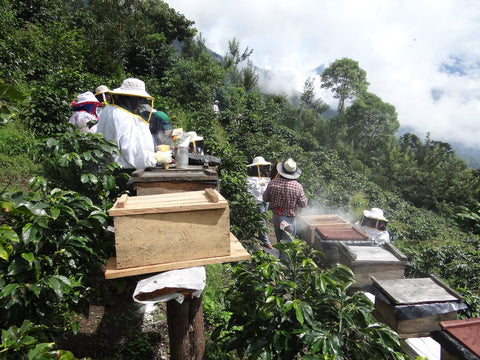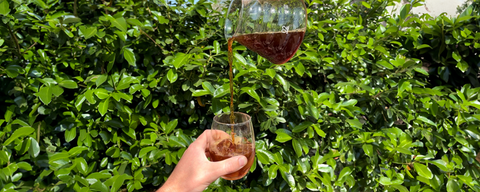First Published - May 20, 2014
We’re proud to source coffee from Fazenda Fortaleza Ambiental in Brazil, who are leaders in sustainable and organic coffee production. They are also responsible for a number of innovative partnerships, where they’ve created collaborations with local, like-minded small scale producers and we’ve now got some delicious microlots from these partnership on our site.
Fazendas Bob-o-link – notes of fruited banana with milky cocoa aroma. The Bob-o-link group of small-producer farms is coordinated by Fazenda Ambiental Fortaleza who support these smallholders located high in the mountains with agronomy training and market access. Their coffees are picked selectively and carefully dried on terraces or raised beds by the farmers, with final dry mill preparations at Fazenda Ambiental Fortaleza (FAF, which translates as Environmental Fortress Farm) and they are fiercely organic in their coffee production and life philosophy. The family have owned the farm for five generations and they mainly produce naturals, honey-processed and a small amount of washed.
They also have grassland for cattle, sugarcane and some other commercial crops under cultivation; mainly bananas. They have created a shade-tree canopy and use mulch techniques to conserve water in the soil to stop the ground drying out. All their fertiliser is produced from composting organic material on the farm. The cupping lab at the farm enables each of the small lots to be evaluated rapidly and provide feedback to producers.

Their organic approach is twofold – to let nature do its work in terms of shade tree coverage with minimal intervention such as fertilisation using organic materials. Also planting coffee trees less densely, compared to intensive production, means the plants don’t compete for nutrition, trees are healthy and disease and pests don’t spread so easily because air circulation around the trees reduces humid conditions required for growth of fungal spores. However, less dense planting generates lower production so income may be reduced; plus young plants are weeded by hand which is intensive work and labour costs for are high compared to other South and Central American producers.

The family are committed to experimenting and innovating through planting different coffee tree varietals; they believe that for organic agriculture to function efficiently there has to be a diverse ecosystem. They use novel agricultural methods such as “skeleton pruning” – where only the framework of the tree is retained. Like all farms they have to manage the problems from pests and disease, but because of their philosophy of farming, the intervention is minimal.

It is to be expected that the farm eschews the mechanised approach implemented by most large coffee agribusiness in Brazil, and here ripe coffee cherries are picked by hand; with tractors used to transport cherries to the drying and processing mill. However, technology provides important tools for controlling quality – with a humidity meter close by the drying beds to precisely measure the humidity of their coffee as it slowly dries on raised drying beds.
Microlots
We’ve got some stunning microlots available from FAF now.
Celso & Gertrudes (FAF) Microlot 319, Brazil
This delicious microlot has flavour notes of caramel, chocolate and apricot. Celso and Gertrude’s farm is in the mountainous region of Caconde, in the state of Sao Paulo. They farm eight hectares of Catuai, Mundo Novo and Bourbon cultivars.
Until 2006 the farm produced conventional coffee. Their transformation to specialty started when they decided to undertake post-harvest processing at the farm, rather than sell their unprocessed coffee cherries to the local wet mill facility. They identified that their coffee was very special and successfully produced the winning lot for the specialty coffee contest for the state of Sao Paulo two years in a row. In the third year they were placed among the finalist of best coffees of Brazil in the Cup of Excellence competition.
Working with the Croce family at Fazenda Ambiental Fortaleza has given Celso and Gertrudes access to roasters like us at Union with the opportunity to develop our Direct Trade relationships. We visited the farm and understood for ourselves the importance of the work that Celso and Gertrudes undertake in producing their high quality coffee.
The farm has a strong environmental programme; protecting natural water springs, waste materials are recycled, no agro-chemicals are used and the overall approach is strongly influenced by organic production systems. During the harvest, coffee is selectively picked by family members. Recently the farm invested in raised drying tables. Celso and Getrudes love their coffee and have ambitions to produce some of the best coffee in the world. From Sitio Caana, there’s Joao Hamilton & Ivan (FAF) 294 Microlot, Brazil with notes of honey, peach, brown sugar and Joao Hamilton (FAF) 321 Microlot, Brazil with notes of chocolate fudge, Creme de cassis and vanilla.
Joao Hamilton & Ivan Dos Santos are one of the farmer partners of the Croce Family at Fazenda Ambiental Fortaleza.
Joao inherited the farm, Sitio Canaa from his father. He moved away from conventional agricultural practices because they often diminish the value of the land to pass on to the next generation. Marcos Croce from Fazenda Ambiental Fortaleza invited the Hamilton family to participate in a sustainability project to produce his coffee in 2006, with the objective of growing the highest quality coffee while simultaneously respecting nature.
Sitio Canaa has evolved through extensive change. By reforesting the land around the natural spring water, recycling waste materials and eliminating the use of chemical fertilizers and herbicides, Joao is achieving his vision of transitioning his farm towards organic production.
So what does this mean for us? We saw the changes he’s brought in, illustrated by healthy coffee trees and the elimination of problems with pests and disease. Joao has gone a step further, focusing on raising the quality of his coffee and the family created new processes to achieve this. They have introduced selective harvesting, teaching workers to pick the ripest purple red cherries where sugars are migrating into the bean producing the sweetest coffee. They introduced changes to post-harvest processing and particularly working with greater care and attention to detail on the drying patio and investing in building raised drying beds. The partnership between the Joao Hamilton and Ivan family along with the Croce family at Fazenda Ambiental Fortaleza has produced some deliciously sweet coffees that we are privileged to roast.
These microlots won’t be around for long so we urge you to try them, and let us know what you like!



